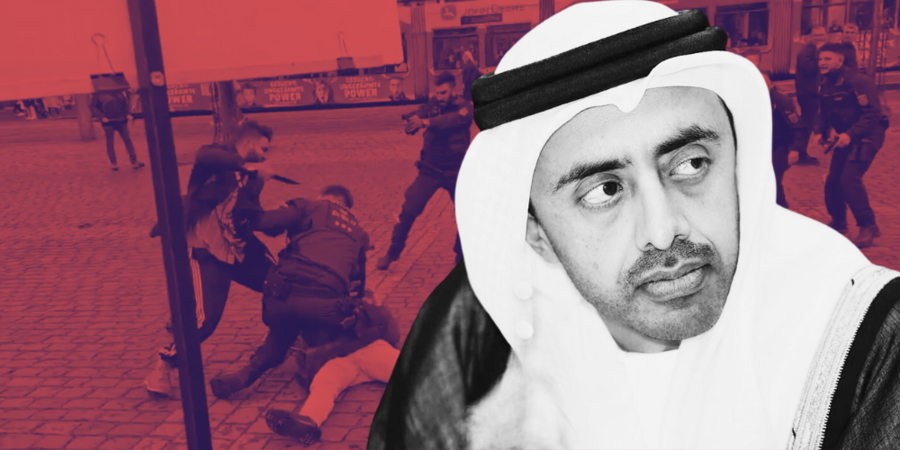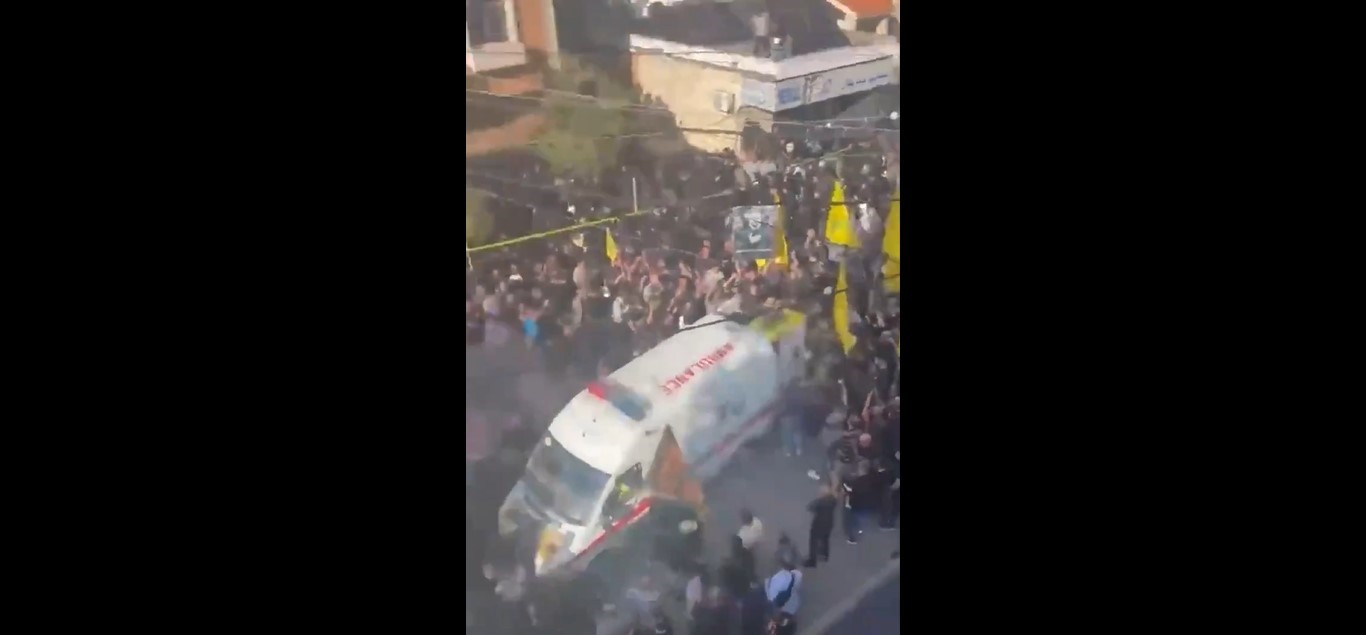
RONEN SHOVAL: Europe will die if it can’t confront Islamic extremism
More than 1,000 people have been arrested in the last few days during the riots across England. Even Indonesia has issued travel warnings for England—a troubling sign that something is profoundly amiss in Europe.
The migration crisis, particularly the influx of Muslim immigrants who often resist assimilation, is unraveling the very fabric of European society. This deep rift has exposed the inherent weaknesses in the postwar European project, prompting urgent questions about the continent’s future. Europe, once a bastion of stability, now finds itself in a state of disarray, with parallels to the fall of another great civilization, the Roman Empire.
For centuries, the Roman Empire was the world’s most formidable power – but it began to disintegrate when it could no longer defend its borders against the influx of barbarian tribes. These tribes, lured by the promise of prosperity within the empire, gradually eroded Rome’s power from within.
Many of these tribes were allowed to settle as allies in exchange for military service. However, they often retained their own leadership and loyalties, undermining the cohesion of the Roman army. Over time, these groups, such as the Visigoths, began to exert significant influence, even pressuring the Empire for better land and resources. This collapse of military integrity led to critical defeats, culminating in the Visigoths’ sacking of Rome in 410 AD. By 476 AD, the once-mighty Western Roman Empire had collapsed entirely.
History, it seems, has a way of repeating itself. Just as the Roman Empire struggled to maintain unity in the face of internal divisions and external pressures, so too did Europe in the aftermath of two world wars. Recognizing the dangers of division, Europe’s leaders envisioned a new political order to prevent internal conflicts. Much like royal marriages in the Middle Ages, the idea was to lower the walls of enmity by fostering closeness.
The European Union, with its supranational governance, common currency, and open borders, was designed to transcend the perilous nationalism that had torn Europe apart in the first half of the 20th century. This vision was anchored in a deep commitment to liberal values—democracy, human rights, and the rule of law—while simultaneously rejecting the destructive nationalisms of the past. The belief was that by blurring national lines and promoting diversity, Europe could forge a more inclusive and harmonious society.
However, this grand vision contained the seeds of its own downfall, much like the Tower of Babel. Europe’s attempt to build a unified political and economic entity devoid of a shared moral foundation has led to confusion and fragmentation, rather than unity. The postmodern rejection of absolute truths, which underpinned the European project, has fostered moral relativism and eroded the sense of justice and the willingness to defend the future.
Europe’s economic and cultural prosperity has made it a magnet for immigrants. The European ideals of inclusivity and diversity are noble and form the foundation of the Pax Europa that followed World War II. However, the European Union’s pacifist vision, which nurtures a life of comfort, takes the achievements of the past for granted. As a result, Europe not only fails to recognize that there are those who seek to exploit its values to advance totalitarian agendas, but it also refuses to use military force to maintain its place in the world.
Moreover, the prosperity that Europe enjoyed attracted those who sought to benefit from its advantages without integrating into its social fabric. These migrants, instead of assimilating, have often sought to transform Europe from within. Unlike previous waves of immigrants, many among the recent Muslim influx have shown little interest in integrating into the European vision. Instead, they often seek to impose their own values on their host countries, leading to escalating friction and, in some instances, outright violence. The rise of Islamist extremism in Europe is not merely a security threat; it is the symptom of a deeper cultural crisis. Europe, having lost confidence in its own identity, is now struggling to defend the very values it professes to uphold.
For instance, the 2015 Paris attacks highlighted the dangers of homegrown radicalization, with most of the attackers being European citizens radicalized within their own communities. The ongoing challenges in regions like Molenbeek, Belgium, where jihadist networks have thrived, reveal how certain areas have become breeding grounds for extremism due to failed integration policies. Additionally, France’s struggle with Islamist radicalization is a stark example of how deeply entrenched this issue has become, with socio-economic and identity challenges exacerbating the situation.
Muslim thinkers refer to the penetration into Europe using the terms “Hijra” and “Taqiyya.” “Hijra” describes strategic migration aimed at spreading Islam and gaining religious and political influence, while “Taqiyya” involves concealing true intentions until a position of strength is achieved. Together, these concepts enable Muslims to integrate into European society while gradually increasing their influence. Meanwhile, the European system of individual and human rights remains powerless in the face of this phenomenon. It finds it easier to act against Europeans defending their identity than against those who seek to dismantle Europe. This reflects an autoimmune failure, where the very principles meant to protect European society are instead contributing to its decline.
The recent riots in England, following a tragic stabbing incident, illustrate the complexity of this issue. While the far-right’s reaction was misdirected in blaming Muslims for the attack, the underlying tension stems from a broader unease about the influence of Islam in Europe. The concern is not merely about isolated acts of violence but about the long-term impact of Islamic values on European culture and identity. As certain segments of the Muslim population in Europe push for changes that align more with Islamic principles, the reaction from native Europeans, whether misguided or not, becomes more predictable. This cyclical dynamic, where attempts to defend European identity clash with efforts to promote Islamic values, is at the heart of the current cultural and social tensions.
As Sheikh Abdullah bin Zayed bin Sultan Al Nahyan, the Minister of Foreign Affairs and a Deputy Prime Minister of the United Arab Emirates explains, “There will come a day that we will see far more radical extremists and terrorists coming out of Europe because of the lack of decision-making, trying to be politically correct, or assuming that they know the Middle East and Islam far better than we do. And I’m sorry, but that is pure ignorance.”
Just as Rome’s expansion ultimately led to its downfall, the very post-national ideals designed to unify Europe are now contributing to its fragmentation. The Bible, particularly the vision of Jeremiah, offers a profound counterpoint to this dilemma. Jeremiah’s prophecy envisions a time when the Mount of the Lord’s House shall stand firm above the mountains, and all nations shall stream to it, not to forge political unity, but to seek moral guidance. “Come, let us go up to the Mount of the Lord, to the House of the God of Jacob,” say the nations, “that God may instruct us in God’s ways, and that we may walk in God’s paths.”
This vision recognizes the enduring existence of different nations, each maintaining its identity, yet united by a shared commitment to moral principles. Peace is achieved not through political homogenization, but through moral unity. The nations remain distinct, yet they come together in Jerusalem, not to conquer, but to learn and to be guided by shared ethical values.
This stands in stark contrast to the postmodern, post-national project of the European Union, which seeks unity through political and economic integration. The biblical vision, as articulated by Jeremiah, offers a model of unity based on a shared commitment to moral and spiritual values, where peace is born from ethical solidarity rather than political centralization.
The failure of Europe is not inevitable. However, to avert the fate of the Roman Empire and the collapse of the Tower of Babel, Europe must rediscover the moral and spiritual foundations that once underpinned its greatness. This necessitates a rejection of the postmodern relativism that has corroded its cultural identity and the adoption of a vision of unity rooted in shared ethical principles.
Europe is confronted with a stark choice. It can persist on its current path of post-nationalism and multiculturalism, thereby risking further fragmentation and decline, or it can endeavor to rebuild its identity on the basis of shared values that honor both the diversity of its nations and the imperative for a common moral foundation. The lessons of history are unequivocal: without a robust sense of identity and purpose, even the most powerful empires will crumble. Europe must choose wisely.
Ronen Shoval, an Israeli philosopher and dean of the Argaman Institute for Advanced Studies, is the author of, “Holiness and Society: A Socio-Political Exploration of the Mosaic Tradition” (Routledge Press), which explores the subtle political philosophy within the Biblical narrative.
This Story originally came from humanevents.com
Stay Updated with news.freeptomaineradio.com’s Daily Newsletter
Stay informed! Subscribe to our daily newsletter to receive updates on our latest blog posts directly in your inbox. Don’t let important information get buried by big tech.
Current subscribers:



